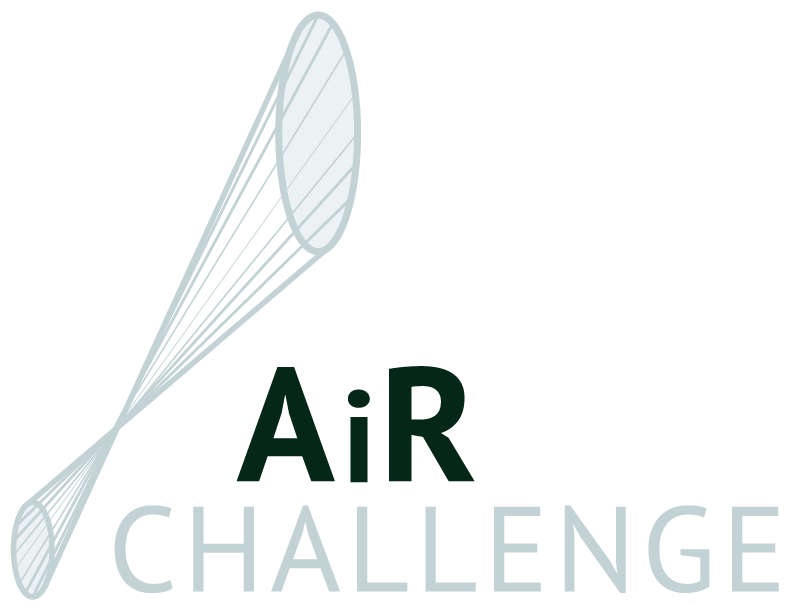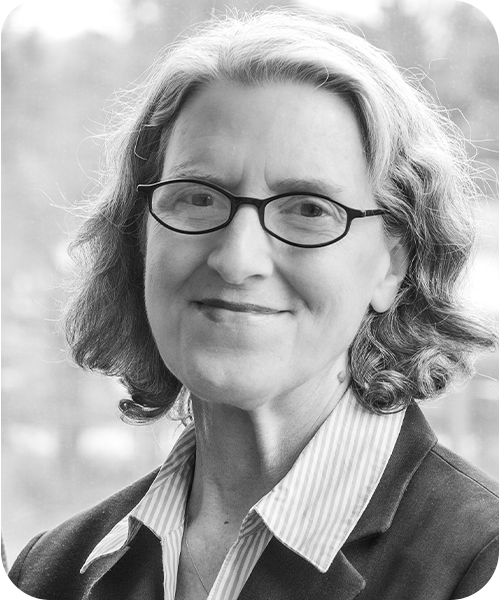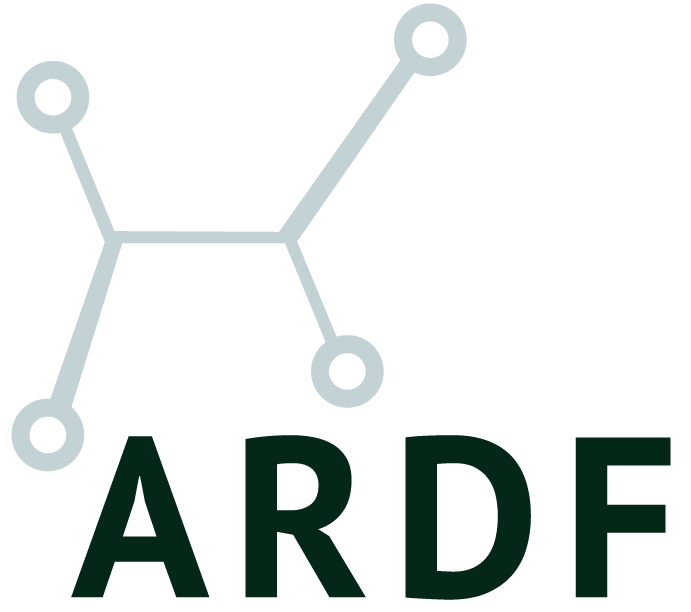
The Alternatives in Research Challenge:
Focus on Childhood Cancer
The Alternatives in Research (AiR) Challenge program supports innovative biomedical research that advances human health using non-animal research methods. The goal of the Focus on Childhood Cancer initiative is to support research that improves the understanding or treatment of childhood cancers while demonstrating that non-animal approaches can be valuable tools for biomedical progress. The AiR Challenge program aims to broaden the understanding and appreciation of alternative methods and expand their use in biomedical research.
With guidance from our Scientific Advisory Committee, the Focus on Childhood Cancer program will fund promising proposals that use innovative and human-relevant research methods to address challenging and important research questions related to childhood cancers. Up to five awards will be funded.
SCIENTIFIC ADVISORY COMMITTEE
The Scientific Advisory Committee (SAC) advises ARDF on the development and implementation of the AiR Challenge program and the selection of grant awards.
Leadership

Raymond R. Tice, PhD (Chair)
Dr. Raymond Tice received a PhD in Biology in 1976 from Johns Hopkins University (Baltimore, MD). He was employed by the Medical Department at Brookhaven National Laboratory (Upton, NY) from 1976 to 1988, by Integrated Laboratory Sciences, Inc (Durham, NC) from 1988 to 2005, and by the National Institute of Environmental Health Sciences (NIEHS) from 2005 to 2015. At NIEHS, he served as the Deputy Director of the National Toxicology Program (NTP) Interagency Center for the Evaluation of Alternative Toxicological Methods (NICEATM) and in 2009 as the Chief of the newly formed Biomolecular Screening Branch within the NTP, where he was the NTP lead on the US interagency Tox21 initiative. Dr. Tice retired from NIEHS in January, 2015. Among his achievements and awards, he served as president of the Environmental Mutagen and Genomics Society, was one of the recipients in 2008 of the North American Alternative Award from the Humane Society of the United States and Proctor & Gamble, and he received in 2016 the William and Eleanor Cave Award for advancing alternatives from the Alternatives Research and Development Foundation.

Brian Berridge, DVM, PhD, DACVP
Dr. Brian Berridge is the Principal Consultant at B2 Pathology Solutions LLC. Prior to his retirement from the NIH in 2023, he was the Scientific Director of the Division of Translational Toxicology and Associate Director of the interagency National Toxicology Program at the National Institute of Environmental Health Sciences. Prior to that, he was Head of Animal Research Strategy at GlaxoSmithKline. Dr. Berridge is a veterinarian and board-certified as a veterinary pathologist. He received a PhD in Veterinary Pathology from Texas A&M University and post-doctoral training at the Texas Heart Institute. He spent 17 years in the pharmaceutical industry as a toxicologic pathologist with specialty expertise in cardiovascular pathology and translational animal research.
He is the former Chair of the pharma industry’s IQ Consortium 3Rs Leadership Group where he also served as the Lead for the Microphysiological Systems Working Group. While at the NIH, he was a member of the NIH Advisory Committee to the Director’s Animal Research Rigor and Reproducibility Working Group. Dr. Berridge is currently a member of the Advisory Committee to the Division of Earth and Life Studies at the National Academies of Science, Engineering, and Medicine and the Stakeholder Advisory Group for the EU’s Horizon 2020 Predictive Toxicology Project.
Kim Boekelheide, MD, PhD
Dr. Kim Boekelheide is Professor Emeritus of Pathology and Laboratory Medicine at the Brown University School of Medicine. He received his B.A. from Harvard University, and M.D. and Ph.D. from Duke University. His research has examined fundamental molecular mechanisms by which environmental and occupational toxicants induce cellular injury and male reproductive effects. A major recent interest has been the development of alternative toxicity testing paradigms and devices for incorporating human metabolism into the risk assessment of drugs and chemicals. He was the founding Director of the Brown University Superfund Research Program, which began in 2005, and is Associate Director of the Brown University Center for Alternatives to Animals in Testing. He was also the PI of a large NIEHS-funded Bioengineering Research Partnerships program designed to develop innovative 3D microtissue models for high throughput toxicity testing.

Larry Carbone, DVM, PhD
Dr. Larry Carbone served 20 years as the Director of the University of California Animal Care and Use Program, and Senior Veterinarian in the UCSF Laboratory Animal Resource Center. He has worked in laboratory animal care in the academic setting as animal care staff, veterinarian, researcher and IACUC member for over 40 years and is specialty board-certified in Animal Welfare (ACAW) and Laboratory Animal Medicine (ACLAM). Following his DVM training at Cornell University, he stayed on as laboratory animal veterinarian and as a PhD candidate in Science and Technology Studies. He is the author of What Animals Want: Advocacy and Expertise in Laboratory Animal Welfare Policy (Oxford University Press, 2004) and of the forthcoming The Hidden Lives of Lab Animals: A Vet's Vision for a More Humane Future (University of California Press, 2026). His research in animal welfare science and policy focuses primarily on pain management for laboratory animals, and on how scientists write about animal pain in their research publications.

Suzanne Fitzpatrick, PhD
Dr. Suzanne Fitzpatrick is the Senior Advisor for Toxicology at the US Food and Drug Administration Human Foods Program. She is a board-certified toxicologist in the US and in Europe. Dr. Fitzpatrick helped develop the FDA DARPA NCATS program on Organs on a Chip and continues to work and give presentations on this evolving area. Dr. Fitzpatrick co-chairs with EFSA the International Working Group on New Approach Methods for Food Safety under the International Liaison Group on Methods for Risk Assessment in Food, a coalition of food safety regulatory from over 29 countries and organizations. She is on the International Regulatory Board for the EU APSIS (Risk Hunter, Precision Toc, Ontox) Research Collaboration for developing new non-animal methods. She is the FDA representative to PARC-The European Collaboration for Chemical Risk Assessment. She is on the Board of Directors for the International MPS Society. Dr. Fitzpatrick is the FDA lead and co-chair for ICCVAM and for Tox 21. She received her BA from the University of California at San Diego and her PhD from Georgetown University.
Sue Leary, MS
Sue Leary served as President of Alternatives Research & Development Foundation from 1995 – 2025, and currently holds the title, President Emerita. With consultant Martin Stephens, Ph.D., she developed ARDF’s AiR (Alternatives in Research) Challenge program, articulating the vision and scope, planning implementation, and securing resources. Sue has also been a member and officer of a number of governance and advisory boards, including the American Anti-Vivisection Society, Global Federation of Animal Sanctuaries, the World Federation for Animals, and the Coalition for Consumer Information on Cosmetics. She served from 2020 – 2024 on the Scientific Advisory Committee on Alternative Toxicological Methods, which advises the Interagency Coordinating Committee for the Validation of Alternative Methods. Sue has a BS in Biology and MS in Nonprofit Management.

Jaume Mora, MD
Dr. Jaume Mora is a pediatric oncologist with a PhD in Molecular Oncology since 2003. After residency training in general pediatrics (1992-1995), he specialized in Pediatric Hematology and Oncology through the fellowship program at Memorial Sloan-Kettering Cancer Center (MSKCC) and Cornell Medical School, in New York (1996-1998). After, he did a Research Fellowship in molecular pathology, also at MSKCC (1999-2001). In 2002, he returned to Barcelona as the leader of the Pediatric Oncology department at Hospital Sant Joan de Déu (HSJD) and created the Developmental Tumor Laboratory. From 2007 until 2012 he was the Head of the Pediatric Oncology Department. Since 2013 he has been the Scientific Director. In 2022, the Pediatric Cancer Center Barcelona (PCCB) at HSJD was opened. He has published more than 450 peer-reviewed publications in the field of neuroblastoma, Ewing sarcoma, retinoblastoma, Wilms tumor, and DIPG.
He has been distinguished with the American Society of Clinical Oncology (ASCO) Young Investigator Award (YIA) in 2000; the 16th Schweisguth Prize of the International Society of Pediatric Oncology (SIOP) in 2001; the ASCO Career Development Award in 2001; the first Research grant for pediatric Oncology of the Spanish Association against cancer (AECC) in 2006; the first Research Award of Translational Oncology of the FERO Society in 2009. His research fellows were awarded with the Schweisguth Prize in 2018 and 2024.

Paul Stewart, PhD
Dr. Paul Stewart is an Investigator at the Huntsman Cancer Institute (HCI), Research Associate Professor in the Department of Nutrition and Integrative Physiology, Associate Director of the Mass Spectrometry and Proteomics Core, Associate Director of the Metabolomics Core, and Member of the Diabetes and Metabolism Research Center at the University of Utah. His research program is at the intersection of computational mass spectrometry and integrative bioinformatics. His work incorporates development of novel computational tools for processing, analyzing, and interpreting proteomics and other mass spectrometry-based data. He is interested in how signaling dysregulation in cancer impacts the tumor microenvironment, host immune response, and therapeutic efficacy. He has developed expertise in using data science techniques to extract biological meaning from proteomics, metabolomics, and lipidomics experiments, and he specializes in integrating this data with next generation sequencing omics ("multi-omics") in support of translational cancer research.

Aranzazu Villasante, PhD
Dr. Aranzazu Villasante is a Tenure-Track Consolidated Senior Researcher at the Institute for Bioengineering of Catalonia (IBEC) in Barcelona, Spain, where she leads the Cancer Engineering research line within the Nanobioengineering Lab. She earned her PhD in Biochemistry, Molecular Biology, and Biomedicine from the Autonoma University of Madrid, investigating tumor suppressors and epigenetics during development and cell reprogramming at the Spanish National Cancer Research Centre (CNIO) under Dr. Manuel Serrano’s supervision.
Following her doctoral work, Dr. Villasante specialized in Biomedical Engineering at Columbia University in New York, training under Prof. Gordana Vunjak-Novakovic and collaborating with Memorial Sloan Kettering Cancer Center to pioneer pediatric bone bioengineered human tumors. Building on this experience, she served as a Visiting Researcher at the TWIns Institute in Tokyo, where she developed the first vascularized neuroblastoma model to study drug resistance.
At IBEC, and in close collaboration with the Sant Joan de Déu Pediatric Cancer Center Barcelona, Dr. Villasante advances 3D tissue-engineered pediatric tumor models that faithfully replicate the human tumor microenvironment. These in vitro platforms deepen our understanding of pediatric tumor biology while propelling personalized therapies and reducing reliance on animal studies.

Maurice Whelan, PhD
Prof. Maurice Whelan is Deputy Director of the Directorate for Health and Food of the European Commission's Joint Research Centre (JRC) based in Italy, and head of its Systems Toxicology Unit. He also heads the JRC's EU Reference Laboratory for alternatives to animal testing, better known as ECVAM. Maurice is a member of the OECD Advisory Group on Emerging Science for Chemicals Assessment (ESCA); a member of the Steering Committee of the European Partnership for Alternative Approaches to Animal Testing (EPAA); and chair of the Regulatory Advisory Board of the European Organ-on-Chip Society (EUROoCS).
His publications include over 200 scientific papers and a book on the validation of alternative methods for toxicity testing. He has held a number of external appointments including the 2017-2018 Francqui Chair for alternative methods at the Vrije Universiteit Brussel (VUB, Belgium), and is currently visiting Professor of Bioengineering at the University of Liverpool (UK).
Members of the SAC serve as individuals and volunteers. ARDF is responsible for all final decisions and activities of the AiR Challenge program.












